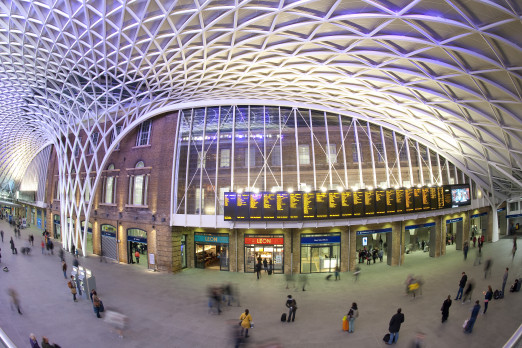“Never was so much owed by so many to so few.” Famous words from the British Prime Minister, Winston Churchill, in 1940 – and so applicable to the items on display at the National Army Museum in Chelsea, London,where two Stannah passenger lifts are installed as part of the recent £multi-million redevelopment.
Why? Because they are an uplifting example of “Access for All” – Stannah’s core mission to bring freedom of movement in public buildings for people of all mobilities, including wheelchair-users.
Linda Stranks, Head of Marketing & Communications at the National Army Museum comments:
“The National Army Museum is a leading authority on the British Army and its impact on society, past and present. In the 21st century – and in our revamped, high-tech Museum – it’s essential that everyone can access the wealth of fascinating objects, surprising stories and interactive fun, and the Stannah passenger lifts help us to achieve this.”
Located adjacent to the Royal Hospital Chelsea, home of the venerated Chelsea Pensioners, the museum was reopened by HM The Queen in March 2017, following a three-year £23.75 million re-development including £11.5 million from the Heritage Lottery Fund (HLF).
The museum now houses five galleries dedicated to the last four centuries of British Army history – with the passenger lifts playing a vital role in assisting 362-days-a-year access to the four floors of exhibits and facilities.
A tough mission? Yes, but this gearless traction duplex was more than up to the job. Comprising a 26-person and 17-person lift operating in a single wall-mounted shaft, the duo was designed and built to withstand the demands of escalating visitor traffic:
• Through-car capability: featuring both flush and deeper architraves to maximise style and performance.
• 4-panel, centre-opening doors: for easy access.
• Flush-mounted landing operation panels and indicators: for easy navigation.
• 3D door infrared sensors: state-of-the-art sensitive door edges detect passengers or objects during door closing.
• Seven stops/11,669mm travel @ 1.0m/s: multi-level performance and speed for user reassurance, comfort and safety.
• High-specification interiors: laminate Formica® ColorCore® Surf CC7923 (RAL 9002); ¾-height mirrors, bump rails; flooring to complement the entry-level corridors.
• Key switch: to enable call preference.
• Energy efficient regenerative lift drive: bidirectional current flow recycles energy by pumping the current back in to the museum’s grid, yielding noticeable savings on running costs.
Further passenger-reassurance is delivered via an autodialler, an automatic phone call system for use in emergencies, installed in accordance with the Health and Safety regulation changes of 1999. Importantly, the lifts also ensure that the premises’ owners comply with the Equality Act 2010.
The duplex also has the added benefit of six lift maintenance visits in the first year – part of a lift-servicing plan delivered by London and the South East (Dartford) branch of Stannah Lift Services, a nationwide network providing comprehensive, 24/7 lift servicing and support.
Stannah played a vital role in the reconfiguration of the main site, working as part of a multidisciplinary team that included contractor Gilbert Ash, architects BDP, and Focus Consultants. As a result, the National Army Museum is now a more welcoming, accessible and flexible environment that can respond to visitor demands, now and for the foreseeable future.



